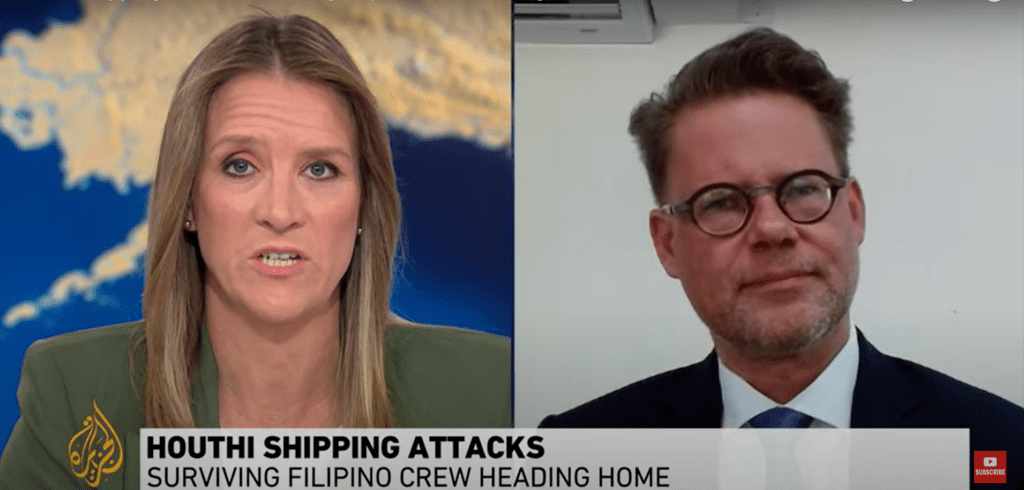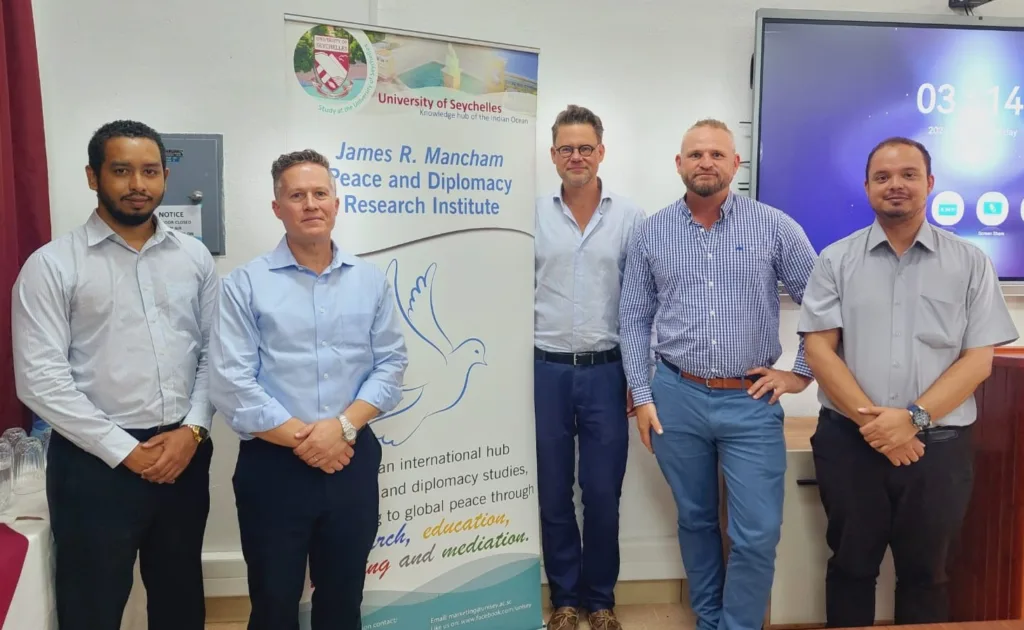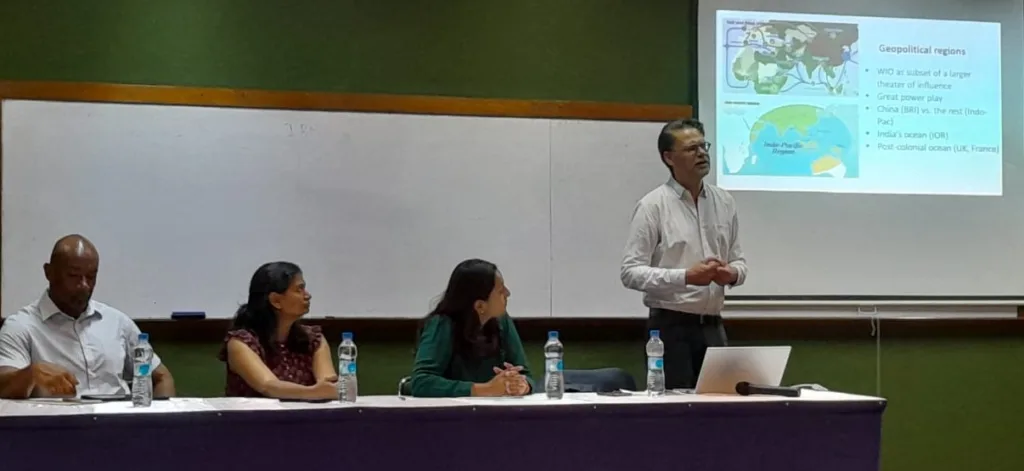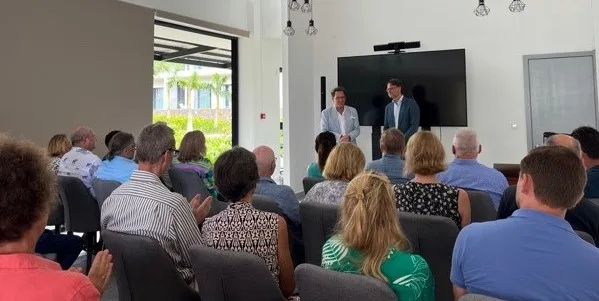Our new book titled the ‘Politics of Global Ocean Regions’ is now available through Springer. Edited with Elizabeth Mendenhall and Rebecca Strating, the book advances a novel analytical framework for studying the politics of global ocean regions, shedding new light on the complex interactions in ocean spaces such as the Arctic, Indo-Pacific, and Indian Ocean.
We want to show that the oceans are not just vast expanses of blue, but dynamic political spaces shaped by complex regional dynamics. This work is the outcome of a three year research collaboration with leading experts across different ocean regions. It includes chapters by by William Waqavakatoga, Joanne Wallis, Samuel Bashfield, Leandra R. Gonçalves, Ana Flávia Barros-Platiau, Carlos Henrique Tomé, Carina Costa de Oliveira, and Andreas Østhagen, as well as by the three editors.
Written for students, researchers, and analysts interested in regionalism and ocean governance, this comprehensive study:
- Presents a novel framework for analyzing ocean regions as political spaces
- Examines the emergence, organization, and effects of global ocean regions
- Demonstrates the importance and complexity of regional maritime politics
- Provides essential insights for understanding the governance of global commons
🔗 Available now: https://link.springer.com/book/10.1007/978-3-031-88984-4 (Contact me, if you cannot access via your institution)
I hope this work will serve as an essential resource for understanding how diverse and complex regional maritime politics shape our world, providing a valuable framework to guide future research in this critical field.



